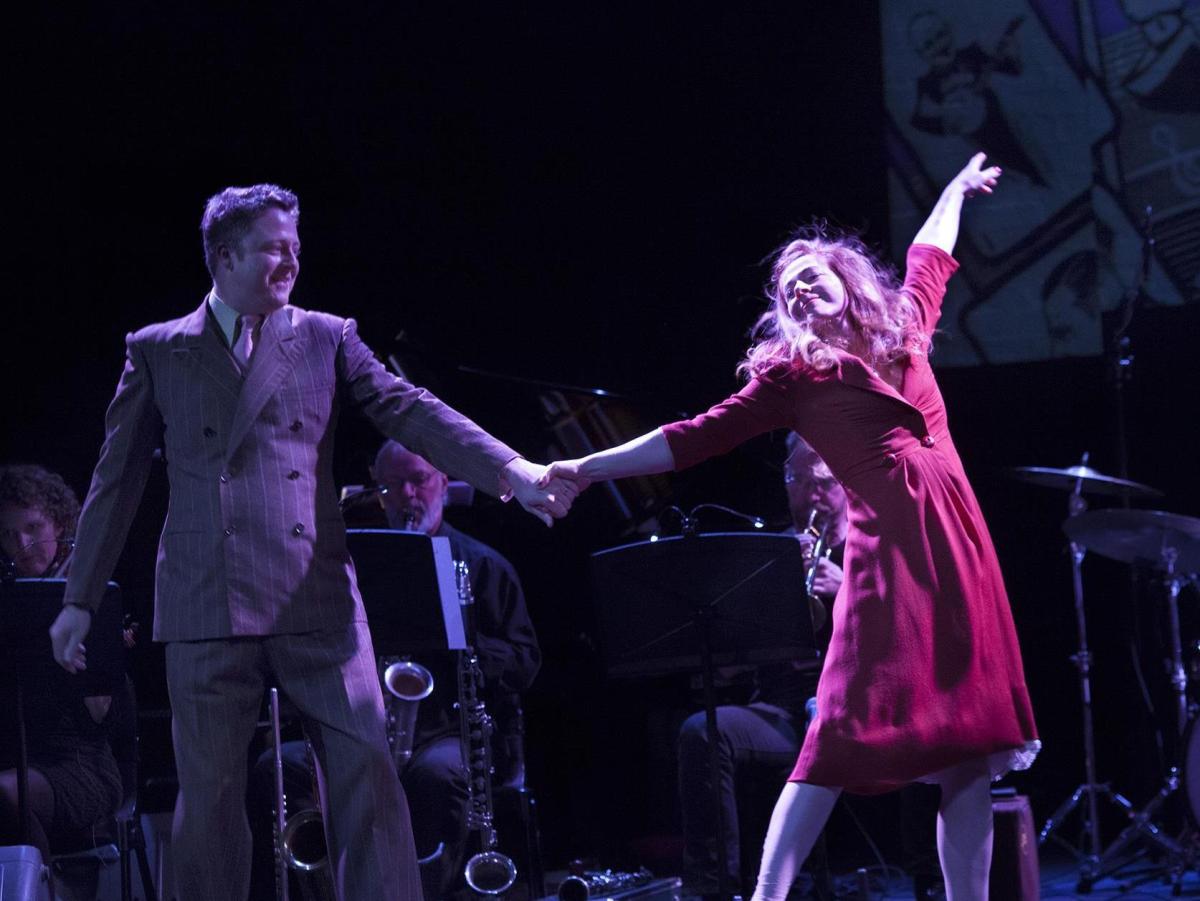Based on the verse biography by Jordie Albiston, The Hanging of Jean Lee is a largely sympathetic view of Lee, who is portrayed both as victim and perpetrator.
The show opens with “Murder at Mallow House”, a song that describes the events that led up to the murder of 73-year-old bookie William “Pop” Kent. Lee, along with lover Robert Clayton and accomplice Norman Andrews, were convicted of the torture and murder of Kent. Barefoot throughout the night, Max Sharam plays Lee, and she possesses a wild, frenzied energy that never quite gets unleashed. Sharam’s raspy voice distinctly captures Lee’s turbulent life filled with violent relationships and petty crime. She occasionally stumbles upon a few lines, which could perhaps be seen as enhancing Lee’s own distressed state of mind.
Hugo Race, Jeff Duff and Simon Malden play various supporting characters and also interchange narration duties. They don fedora hats and well-worn suits; making it easy to associate them with the swirling cigarette smoke and dark underbelly of 1940s film noir. Thankfully, the production partially rejects this and does not place Lee as a typical femme fatale. Instead, The Hanging of Jean Lee presents many different faces of Lee, such as with providing different, clashing testimonies about the crime and it becomes deeply ambiguous if Lee was even entirely guilty.
Digital projections are shown in the background, and include song titles, newspaper clippings, personal photographs, Lee’s mug shots and short video clips set on a loop. These black-and-white images and reenactment footage set the stage for an unnerving Australian society. With 1940s newspaper headlines that cry “murderess”, the clash between restrained aspects of femininity and the ruthless, brutal murder becomes more apparent with these additional visual elements.
The quartet is backed by an impressive seven-piece band that play Greenwell’s musical score, ranging from soul-infused, jazzy tunes to frantic, post-punk pop. Greenwell presents an assured direction as she deliberately blends various genres, displaying the many different shades of Lee’s rough life. Legendary jazz musicians Lachlan Davidson and Shane Gillard are in top form too. From electrifying shrieks to woeful laments, their respective woodwind and brass instruments provide a crackling atmosphere to the band’s performance. Overall, the thirty songs aptly fit the various stages of Lee’s life and in particular, the childhood rhymes are interestingly repeated and morphed into something else entirely. For example, the nursery songs are first performed by Sharam to stage Lee’s happy childhood, and later, used by the men as daunting chants against Lee, and finally, Lee’s swansong is a jumbled childhood rhyme. This certainly serves a reminder that Lee is innately human, not a natural born killer.
The night closes with “Fly Away Jean”, a gentle lullaby about Lee’s death. The legato melody is fairly soothing but the lyrics are almost cringeworthy: ‘When all over Melbourne, the tram goes by / And mothers call children to their sides, and cover up their innocent eyes’. With a repeated line of ‘She is dead, she is dead’, the finale, unfortunately, presents The Hanging of Jean Lee as anything but subtle.
The Hanging of Jean Lee encapsulates an immensely riveting representation of a troubled woman, yet it proves to be more of an entertaining performance, rather than a thought-provoking one. Despite its unsettling material, the production does not break any new ground and retains a highly conservative position towards Lee’s execution. Ultimately, The Hanging of Jean Lee prides itself in its inquisitive nature and reassuringly conventional attitude in regards to a woman’s doomed life and her eventual death.
Rating: 3 stars out of 5
The Hanging of Jean Lee
7-8 December
Arts House, North Melbourne Town Hall
Composer/Image Director: Andrée Greenwell
Libretto: Jordie Albiston and Abe Pogos based upon the verse biography The Hanging of Jean Lee by Jordie Albiston (Black Pepper)
Performers: Max Sharam, Hugo Race, Jeff Duff, Simon Maiden
Musicians: Andrea Keeble, Shane Gillard, Lachlan Davidson, Harry Cook, Willy Zygier, Lucas Taranto, Joshua Barber
Audio: Michael Hewes
Production Manager/Lighting Designer: Neil Simpson





